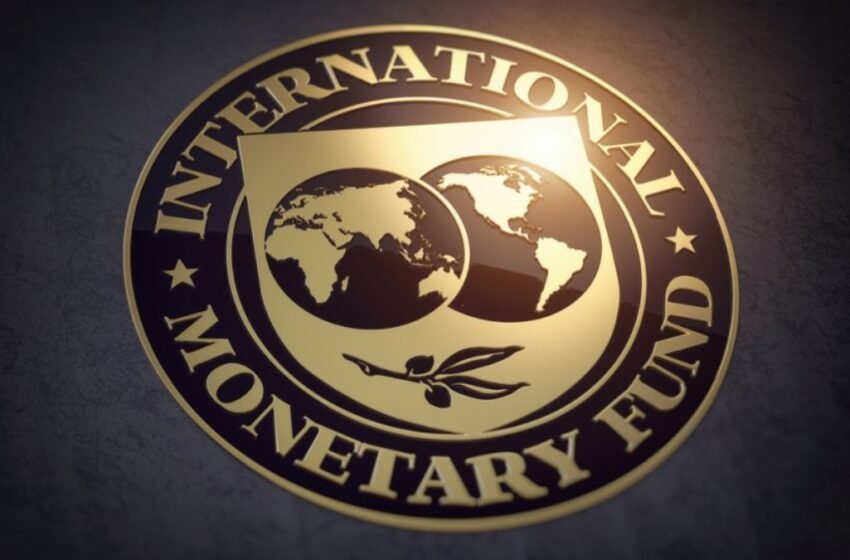Robert Kiyosaki Predicts Bitcoin ‘Blast off’ as Global Tensions Push
Transforming Cross-Border Payments with CBDC Platforms, says IMF Official
(Originally posted on : Crypto News – iGaming.org )
The idea of new platforms for international central bank digital currencies (CBDCs) was put forth by Tobias Adrian, head of the International Monetary Fund, in a lecture given in Rabat, Morocco. Adrian thinks that while still enabling nations to enact compliance checks and capital controls, such platforms could increase cross-border payment efficiency and safety. Adrian said, “Our blueprint for a new class of platforms would enhance and ensure greater interoperability, efficiency, and safety in cross-border payments, as well as in domestic financial markets. The cost, sluggishness, and opacity of cross-border payments comes from limited infrastructure.”
Enhancing Interoperability and Efficiency
Adrian provided a roadmap for these new platforms, highlighting the significance of improving interoperability, efficiency, and safety in domestic financial markets as well as cross-border payments. Cross-border payments are expensive, slow, and opaque in part because of the insufficient infrastructure that is already in place. Adrian proposed that the issue of double spending would be eliminated by using a single ledger that was managed by the platform operator.
New players only. Welcome Bonus – 125% bonus on your first deposit up to $2,500
According to Managing Director Kristalina Georgieva, the IMF is actively developing a global infrastructure that would encourage cooperation between various CBDCs. According to a Fintech Note from the IMF, the proposed approach would for programmable payments without jeopardizing the privacy of payees. Contracts could be used as collateral, maintaining liquidity without affecting money’s fungibility. In September, Adrian first proposed the concept of a CBDC platform.
Addressing Limitations and Ensuring Government Control
The limits of blockchain technology, such as validator costs, security, efficiency, and privacy, were acknowledged in Adrian’s speech. Adrian indicated preference for a single ledger managed by the platform operator while some support blockchain-based validation. He said, “The ledger would be controlled by the platform operator. The single ledger would ensure there is a unique description of who owns what, so no double spending can occur.” This strategy would avoid double expenditure and offer a transparent ownership record. Adrian also stressed that governments will still have the right to set restrictions on their citizens’ international transactions and put in place anti-money laundering policies. IMF wants to prevent undermining the capital controls put in place during financial crises.
Although proponents of cryptocurrencies frequently point out the possibility of making cross-border payments simpler, free-floating blockchain solutions face stiff competition. State-backed CBDCs are being investigated by standard-setting organizations like the Bank for International Settlements and private players like SWIFT. The impact of stablecoins is being investigated by the Committee on Payments and Market Infrastructures, which is affiliated with the Bank for International Settlements. A report from the European Central Bank also issued a warning against the notion that cryptocurrency might considerably lower the cost of international payments.
New players only. Exclusive 177% Welcome Bonus + 77 Free Spins in Aztec Magic Deluxe







 Bitcoin
Bitcoin  Ethereum
Ethereum  Tether
Tether  XRP
XRP  USDC
USDC  Solana
Solana  TRON
TRON  Figure Heloc
Figure Heloc  Lido Staked Ether
Lido Staked Ether  Dogecoin
Dogecoin  WhiteBIT Coin
WhiteBIT Coin  Cardano
Cardano  USDS
USDS  Bitcoin Cash
Bitcoin Cash  LEO Token
LEO Token  Wrapped stETH
Wrapped stETH  Hyperliquid
Hyperliquid  Chainlink
Chainlink  Wrapped Bitcoin
Wrapped Bitcoin  Monero
Monero  Binance Bridged USDT (BNB Smart Chain)
Binance Bridged USDT (BNB Smart Chain)  Ethena USDe
Ethena USDe  Canton
Canton  Stellar
Stellar  USD1
USD1  Wrapped eETH
Wrapped eETH  Rain
Rain  Litecoin
Litecoin  sUSDS
sUSDS  Hedera
Hedera  Dai
Dai  PayPal USD
PayPal USD  Coinbase Wrapped BTC
Coinbase Wrapped BTC  Avalanche
Avalanche  Zcash
Zcash  Sui
Sui  WETH
WETH  Shiba Inu
Shiba Inu  Toncoin
Toncoin  Cronos
Cronos  USDT0
USDT0  World Liberty Financial
World Liberty Financial  Tether Gold
Tether Gold  Polkadot
Polkadot  PAX Gold
PAX Gold  Uniswap
Uniswap  MemeCore
MemeCore  Mantle
Mantle  Ethena Staked USDe
Ethena Staked USDe  BlackRock USD Institutional Digital Liquidity Fund
BlackRock USD Institutional Digital Liquidity Fund  Circle USYC
Circle USYC  Bittensor
Bittensor  Sky
Sky  Aave
Aave  Aster
Aster  Falcon USD
Falcon USD  Global Dollar
Global Dollar  Pi Network
Pi Network  NEAR Protocol
NEAR Protocol  syrupUSDC
syrupUSDC  OKB
OKB  Ripple USD
Ripple USD  Bitget Token
Bitget Token  Pepe
Pepe  HTX DAO
HTX DAO  Internet Computer
Internet Computer  Ethereum Classic
Ethereum Classic  BFUSD
BFUSD  Ondo
Ondo  Worldcoin
Worldcoin  Pump.fun
Pump.fun  Gate
Gate  POL (ex-MATIC)
POL (ex-MATIC)  KuCoin
KuCoin  Superstate Short Duration U.S. Government Securities Fund (USTB)
Superstate Short Duration U.S. Government Securities Fund (USTB)  Midnight
Midnight  Jupiter Perpetuals Liquidity Provider Token
Jupiter Perpetuals Liquidity Provider Token  Ethena
Ethena  Cosmos Hub
Cosmos Hub  Ondo US Dollar Yield
Ondo US Dollar Yield  Jito Staked SOL
Jito Staked SOL  NEXO
NEXO  USDtb
USDtb  Binance-Peg WETH
Binance-Peg WETH  Spiko EU T-Bills Money Market Fund
Spiko EU T-Bills Money Market Fund  Rocket Pool ETH
Rocket Pool ETH  Official Trump
Official Trump  Binance Bridged USDC (BNB Smart Chain)
Binance Bridged USDC (BNB Smart Chain)  Algorand
Algorand  Aptos
Aptos  Wrapped BNB
Wrapped BNB  Filecoin
Filecoin  Function FBTC
Function FBTC